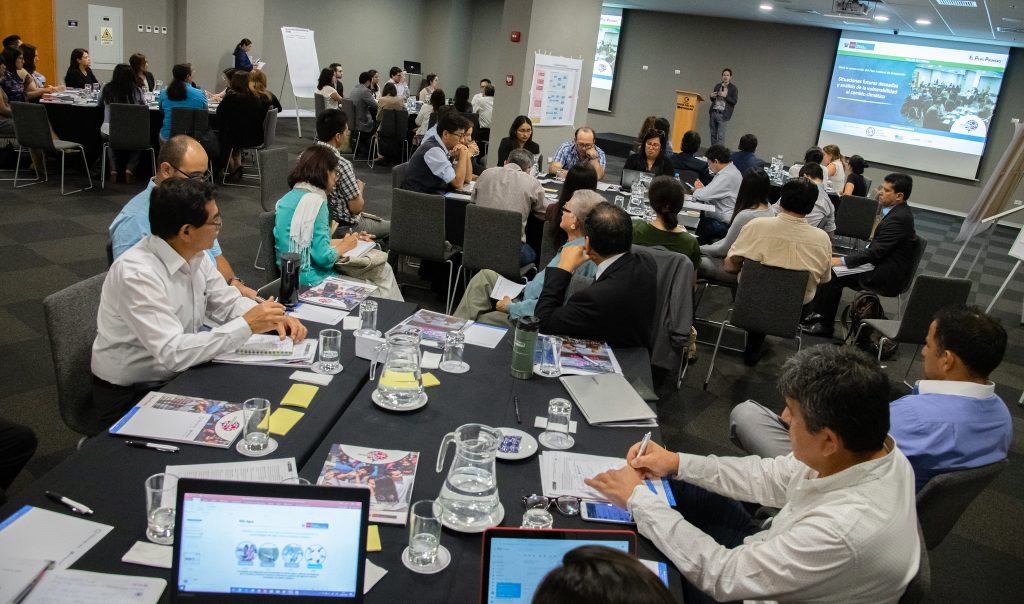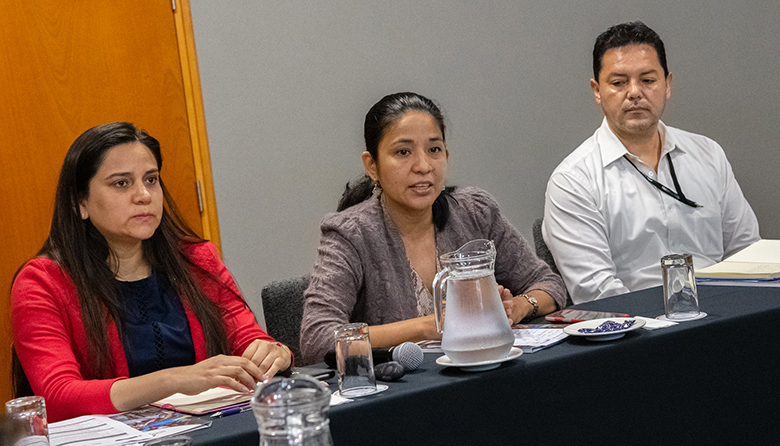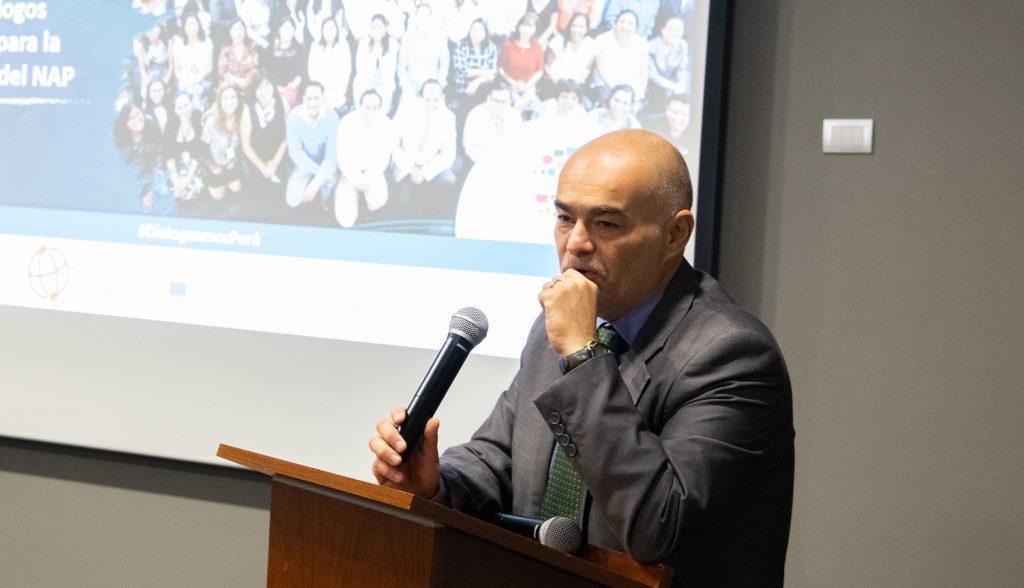
Peru kicked off the process to develop its National Adaptation Plan (NAP) document in October 2019. The NAP document is being developed through a participatory process and grounded in five prioritized thematic adaptation sectors set out by the government’s Multisectoral Technical Group in 2018: agriculture, forestry, water, fisheries and aquaculture, and health.
Convening Stakeholders From Across Sectors
In January, a series of events took place in Lima in order to advance the development of the NAP. On January 16, over 100 experts and stakeholders from the various ministries involved in the NAP process convened for a Sectoral NAP Document Development Workshop. The participants reviewed the progress of the five thematic adaptation sectors and discussed options for achieving desired future adaptation outcomes.
The workshop was also an opportunity to discuss the implementation of 91 adaptation measures included in Peru’s Nationally Determined Contribution (NDC). Cristina Rodriguez, director of Adaptation to Climate Change of the Ministry of Environment, remarked that the NAP document will provide guidelines to reduce the country’s vulnerabilities and create opportunities for sustainable development. “Its importance is reflected today in the massive participation of all the sectors involved in its elaboration and implementation,” said Rodriguez.
NAP’s First Draft

The Ministry of Environment hosted another workshop on January 21. During the event, high-level stakeholders from several government departments assessed a preliminary version of the Peruvian NAP, providing inputs to enhance the document and signalling a commitment to the implementation of adaptation actions in their sectors. In his opening remarks, Gabriel Quijandría, vice-minister of Natural Resources Strategic Development, highlighted the participatory nature of the process for developing the Peruvian NAP and the need to work across leadership.
“Given the importance of the NAP document, it requires the commitment and the action of all government sectors. The climate ambition presented by Peru at COP 25 demands a new momentum to make the NAP process an opportunity that ensures our sustainable development,” said Quijandría.
The Colombian Experience
Between the workshops, the Ministry of Environment also hosted a peer learning and exchange event with stakeholders from the Government of Colombia. Representatives from the Peruvian ministries of Agriculture and Irrigation, Economy and Finances, Energy and Mines, among other government departments, learned from the process leading to the development of Colombia’s National Climate Financing Strategy.

The participants assessed the outcomes, challenges and lessons learned from the Colombian experience. They also discussed the Colombian multisectoral strategy to develop adaptation policies. In addition, the stakeholders engaged in group exercises on how to integrate the lessons from Colombia in Peru’s pilot project of financing climate policies.
Daniel Morchain, an associate with the NAP Global Network, facilitated the events in Lima. In relation to this peer exchange, as well as the two NAP workshops, he indicated that Peruvian stakeholders are showing great capacity to work together in order to turn the challenge of climate change adaptation into an opportunity for resilience and development. “The leadership on climate action that Peru is demonstrating shows the extent of the progress that can be made to build climate resilience through the National Adaptation Plan process,” said Morchain.
Technical assistance for the Peruvian government to organize the workshops and the peer learning and exchange event was delivered via the NAP Global Network’s U.S. In-country Support Program for Peru.
Read more about Peru’s NAP Process:
- Peruvian Ministry of Environment launches participatory process for the development of the National Adaptation Plan on Climate Change
- Peru Will Be the First Country in the World with an Indigenous Climate Platform
- Experts from Five Latin American Countries Meet in Lima to Share Experiences and Lessons Learned in Monitoring and Evaluation in Adaptation to Climate Change
- Peru’s Ministry of Environment trains regional journalists on climate change